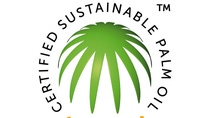Sustainability
Our Journey Towards Sustainable Oil Palm Products
BASF wants to ensure that its renewable-based products are made from sustainably sourced raw materials.
Our Role
Two of our key renewable raw materials are palm oil and palm kernel oil and their respective derivatives, which we mainly use to produce home and personal care ingredients and, to a lesser extent, food ingredients. Oil palm plantations can contribute significantly to deforestation, loss of biodiversity and climate change from the loss of peatland. We share the widespread concern about these challenges and are committed to reducing the impact on the environment.
As one of the leading processors of palm (kernel) oil within the Home and Personal Care Industry, we regularly show you the progress being made on our journey toward sustainable oil palm products.
Our primary concern is to ensure that our products are produced from sustainably sourced palm products. We see it as our responsibility to work intensively with the companies we buy our raw materials from, to engage more closely with the palm supply chain from the smallholder to the end consumer, and to address the consequences of using and selling products based on palm oil and palm kernel oil.
Our Challenge
Palm oil and palm kernel oil are very versatile vegetable oils, and oil palm trees produce higher yields per hectare than any other oil seed. These facts, combined with relatively low production costs explain, why these vegetable oils are so popular.
However, the palm oil supply chain is complex, involving challenges linked to environmental protection, human rights, economics in developing countries and international trading.
In the past two to three years, our focus has been on certified sustainable palm kernel oil. We have used our certified supply chains to increase traceability.
In contrast to certified palm oil, the availability of certified sustainable palm kernel oil derivatives is still limited. We at BASF therefore support market transformation via certification. For us certification is key for sustainable palm cultivation. The RSPO certification process is currently the most transparent and effective initiative globally to improve the entire palm oil sector. It provides the necessary infrastructure to monitor the market transformation in a transparent manner. To progress holistically, however, the collaboration of all partners in the value chain is needed.

Our Approach
BASF advocates market transformation towards certified sustainable oil palm products. We actively support the Roundtable on Sustainable Palm Oil (RSPO) and have been working to foster the physical transformation of the industry. BASF stepped up its commitment to certified sustainable oil palm products in the German, Austrian and Swiss markets by joining the Forum for Sustainable Palm Oil in 2017 as a supporter. As oleo derivative producer we are connected to both ends of the supply chain – upstream with suppliers and downstream to our customers. We follow a multi-stakeholder approach: We engage with partners both inside and outside the supply chain to achieve the best possible outcomes for all stakeholders.
By working with our customers and other stakeholders in the Northern Hemisphere and by actively supporting plantations and smallholders in the Southern Hemisphere, we want to contribute to making sustainable oil palm products the norm in the industry. It is our goal to actively support a more rapid transformation of the entire industry.
In addition to palm oil and palm kernel oil, we have included palm oil and palm kernel oil fractions as well as primary oleo derivatives from the major oleochemical processes in our time-bound plan. These include, for example, fatty acids and fatty alcohols that are used for home and personal care applications and derivatives used for producing food performance ingredients in our Nutrition & Health business. As a result, we will be able to cover the majority of oleo derivatives. Despite the high complexity of our downstream products, it is our goal to achieve transparency for all oil palm products.

Palm Commitment

We want to ensure that our products are made from sustainably sourced raw materials. On our journey towards sustainable oil palm products we have made progress: We actively support the use of palm and palm kernel oil from sources certified by the Roundtable on Sustainable Palm Oil (RSPO). In 2015 we renewed and extended the BASF Palm Commitment. With the BASF Palm Sourcing Policy we have published a purchasing guideline for palm oil products which includes the protection of forest and peatland. We drive the traceability of our oils to the mill level and support smallholder farmers. The latest results of our efforts you can find here, updated twice a year.
According to our plans we intend to
- by 2020 – source only sustainable palm and palm kernel oil RSPO certified sustainable as far as available on the market;
- by 2025 – expand these commitments to the significant intermediates based on palm oil and palm kernel oil. These include fractions as well as primary oleochemical derivatives plus vegetable oil esters.
- support initiatives to reflect an integrated land use planning for oil palm development that includes the conservation of high carbon stock forests and peatlands. We integrated additional forest conservation requirements regarding high carbon stock and peatland into our BASF Palm Sourcing Policy (as defined by the High Carbon Stock Approach). Additionally, we have incorporated requirements for a “Free, Prior Informed Consent” (FPIC) as well as labor and human rights into our Palm Sourcing Policy.
We are expanding our offering of certified sustainable products in accordance with the RSPO’s Mass Balance supply chain model. In 2018, we have taken the decision to drive sustainable palm with a major portfolio shift. We will offer palm-based ingredients for the personal care market that are certified as sustainable. This helps our customers to meet their obligations to customers, consumers and stakeholders. To fully complete the switch on a global level, BASF discusses with all its stakeholders to expand the demand for RSPO MB certified products. This is an important milestone for the cosmetics industry.
Smallholder engagement as integral part of sustainable palm production: Partnerships in terms of smallholder projects enable BASF to support these farmers and at the same time increase the availability of sustainably produced palm oil, e.g. by offering continuous education and technical support on implementing and maintaining sustainable palm oil practices and to foster a sustainable palm oil production supply chain that is free from deforestation and competitive in the global market, while increasing the social and economic benefits for farmers.
Progress year-to-date
- BASF reached an important milestone on its path toward sustainable palm by fulfilling the part of its Palm Commitment to procure palm (kernel) oils exclusively from sources physically certified by the RSPO by 2020. Based on our voluntary commitment to sustainably source palm oil products, we purchased 227,213 metric tons of certified palm kernel oil in 2020. This represents 100% of our total volume.
- Demand for certified products increased significantly again. As a result, in 2020we increased sales volumes of certified palm oil and palm kernel oil-based products for the cosmetics and detergent and cleaner industries by more than 30% compared with the previous year.
- BASF also continues to drive forward the RSPO supply chain certification of our sites for cosmetic ingredients. In 2020, 25 production sites worldwide were RSPO certified.
- At the same time, we will step up our efforts to improve transparency and traceability in the supply chain. We were able to trace almost 95% of our overall oil palm exposure back to oil mill level in 2020.
- Again, we published our product carbon footprint (PCF) for sourcing certified sustainable palm kernel oil. Compared to conventionally sourcing, BASF saves more than 300,000 metric tons CO2 emission. RSPO-certified production of palm kernel oil shows around 36 percent lower global warming impact than non-certified production.1
- In 2021, we published our fifth progress report (covering 2020) – the BASF Palm Progress Report – for greater transparency in the value chain.
1 The PCF is calculated according to the requirements and guidelines for quantification as stated in ISO “14067:2018-08 - Greenhouse gases – Carbon footprint of products”.
Join the Dialog
As the world is consuming more and more palm oil for food, biofuel and personal and home care ingredients, the expansion of palm oil production continues to threaten environmentally sensitive areas of tropical forests and peatlands. With the urgency in sight: how does the home and personal care industry get to sustainable palm?
In 2016, we established the BASF Palm Dialog as a platform to discuss topics relevant for the industry with representatives from the entire supply chain: During the past four years, we have discussed solutions and possible pathways forward with participants from industry, retail, associations and NGOs as well as trade media during the global tradeshow In-Cosmetics. Participants mainly confer about certification requirements, transparency on cost impact and public awareness of the supply chain from smallholders to end consumers.

